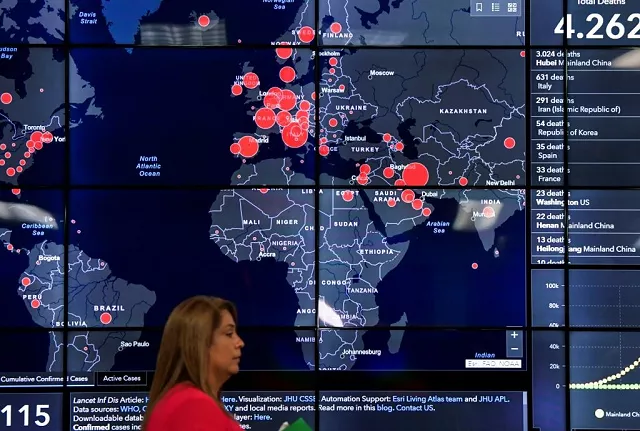Suffering of the invisible
We will continue to underestimate cases and continue to increase likelihood of our system to get overburdened
The official number of confirmed cases for Covid-19, as of Monday, March 16, is 94. To understand how widespread the epidemic in Pakistan is, we need to understand how many people have been tested. The National Institute of Health (NIH) says that around a thousand people have been tested. If this number is true then there is cause for concern as one out of every ten people tested is turning up positive. Testing in the private sector seems ad hoc and there is no real data available to fully understand the scale and scope in the country.Beyond transparency in the numbers, there are other real challenges as well. From what has been said in the news media, testing is neither free (unless there is a government referral), nor straight forward for the common person. As per the federal minister, in a country of nearly 210 million, there are a total of 13 sites to get tested. By any standards, this is woefully inadequate. These 13 sites are unreachable for the majority of the country that does not live in major urban areas. But even if these 13 sites were fully functional, and worked round the clock, the financial burden on individuals to get tested is significant, and one that is going to be a deterrent. As a result, we will continue to underestimate the cases, and continue to increase the likelihood of our system to get burdened in ways it cannot handle. Then there are many who live in crowded communities, where social distancing is simply not possible. How will these people, who do not have the luxury of self-quarantine receive care?
Finally, the fact that we have closed schools, universities, and major events is a step in the right direction, and one that should have happened a few weeks ago. But with these closures, thousands will have no ability to make a living. The small shop owners, street vendors and the daily wage earners will be hit hard. They may or may not develop symptoms of the viral infection, but if they do, they will have even less money to come to the hospital and low incentive to get tested. Burdened by inflation and financial insecurity, these citizens are already hurting well before the virus has hit their homes and communities. They may not be in our official numbers, but they ought to be cared for with heightened sensitivity for their difficulty.
So what should we do? There are things that the government ought to do, for example, be honest and transparent about the numbers, provide a clear and coordinated strategy among all provincial and local governments, and increase testing sites that offer free services for testing. Indeed, all 210 million cannot be tested, but those who feel there is a need (symptoms, travel history, coming in contact with others, elderly) should be able to get a test. As the virus spreads in the community, a very narrow case definition (based solely on contact with confirmed cases, or history of travel to China, Iran or a couple of other countries) will exclude others who ought to be tested. Testing should also be facilitated in sites that go beyond large hospitals in big cities.
But there are other things that citizens ought to do as well. Local organising can make a difference between life and death for the most vulnerable. We should reach out to the support staff in our workplace and our homes, pool in resources so that hourly and daily wage earners can stay at home and still get paid, and create ways to provide non-perishable food items to those who are in need.
We take great pride in having a culture of caring — let us see it in action for those who are not part of our official statistics.
Published in The Express Tribune, March 17th, 2020.
Like Opinion & Editorial on Facebook, follow @ETOpEd on Twitter to receive all updates on all our daily pieces.


COMMENTS
Comments are moderated and generally will be posted if they are on-topic and not abusive.
For more information, please see our Comments FAQ